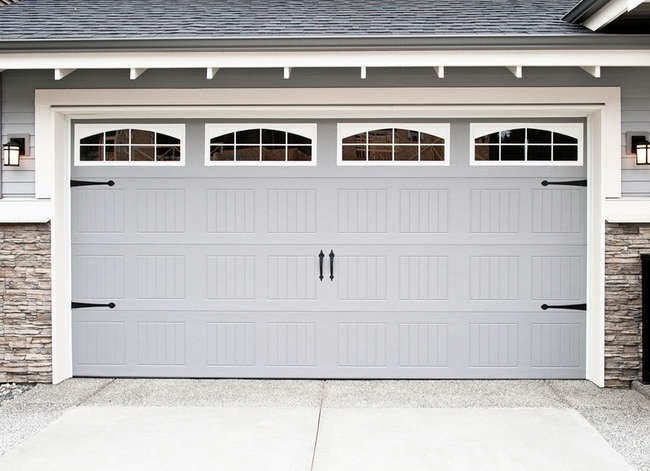We may earn revenue from the products available on this page and participate in affiliate programs. Learn More ›
Look Upward for Additional Storage
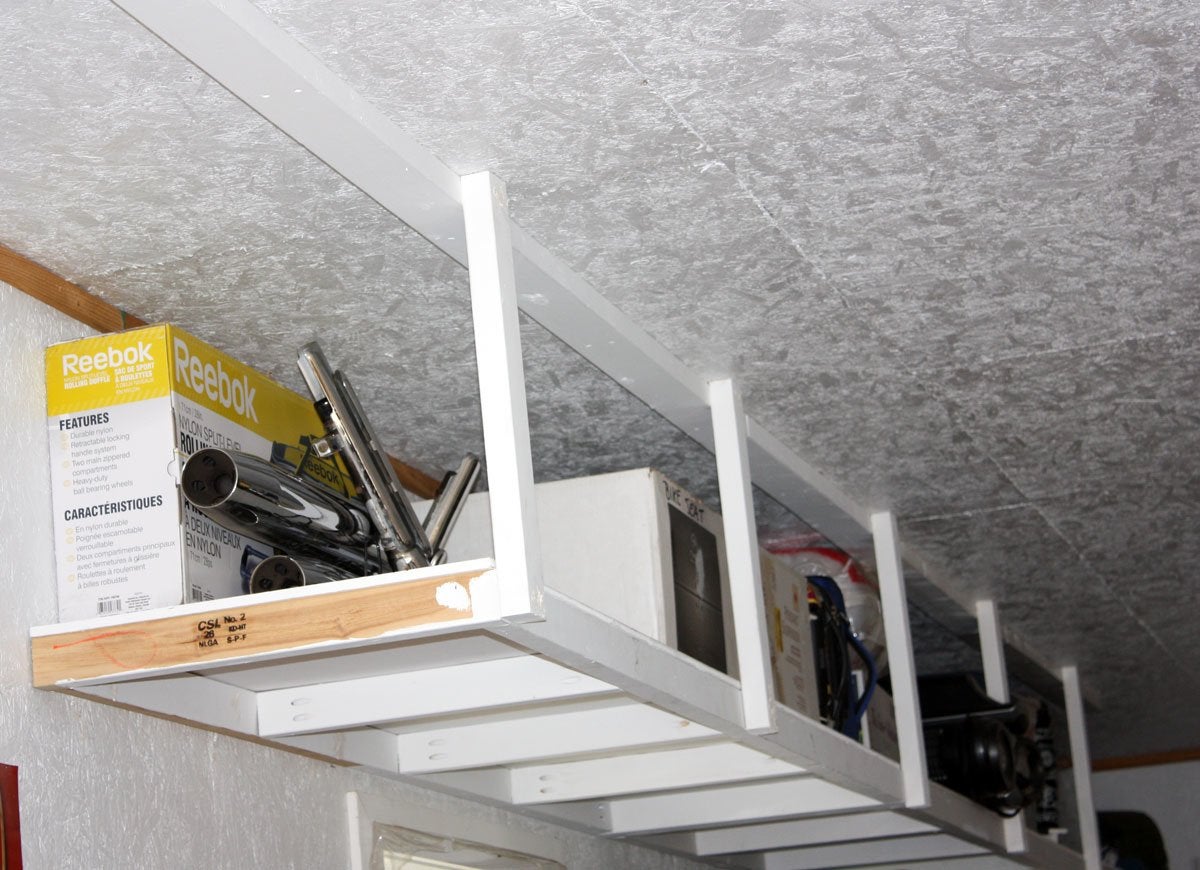
No matter the size of your garage, storage space always seems to be in short supply. Most homeowners don’t take advantage of the vast area overhead—but they should! By installing a ceiling storage system, you can transform wasted space into a clever stow-away spot for off-season decor and seldom-used items.
Invest in Rolling Tool Storage
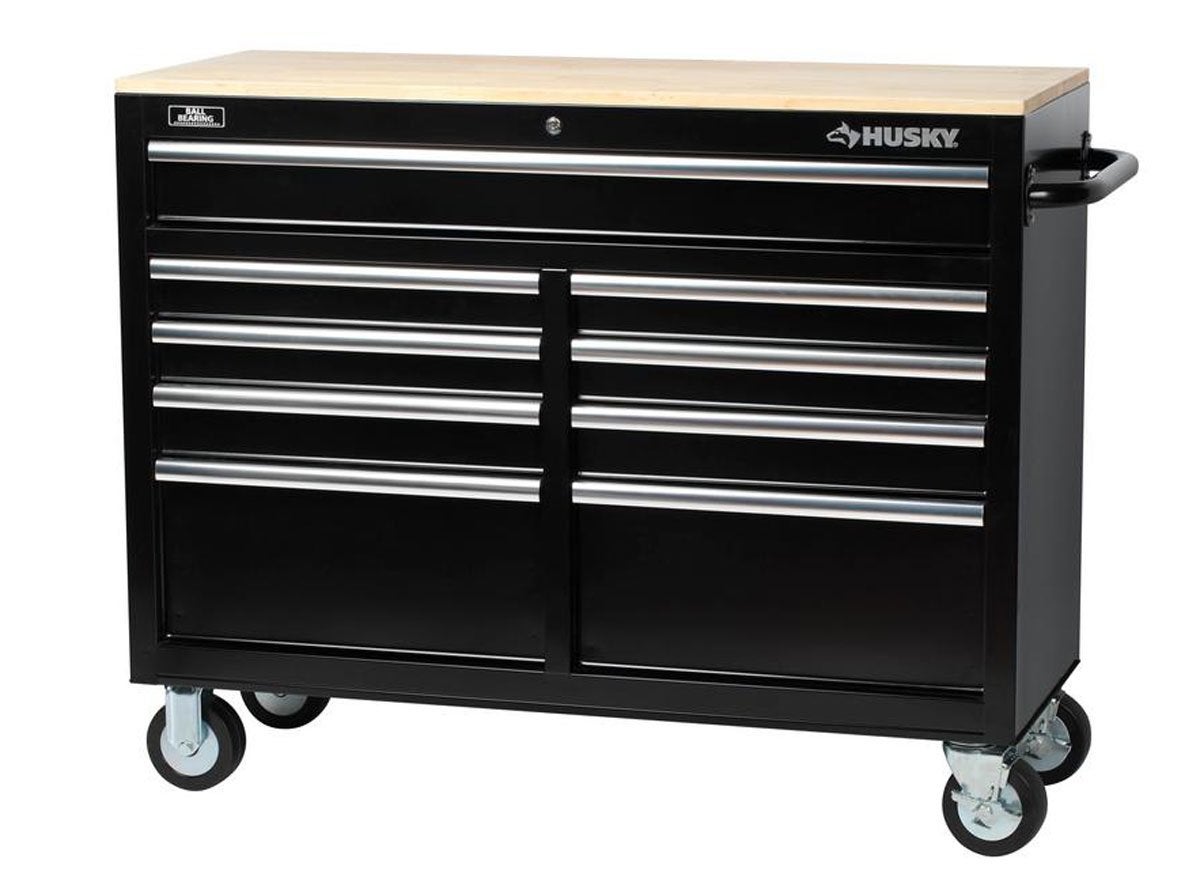
Any DIYer or handyman knows that hand tool collections never stop growing—even when wrenches, screwdrivers, nuts, and bolts overflow the garage shelves. To organize tools and supplies, invest in a multi-drawer rolling tool chest that can be easily relocated as necessary. We recommend buying one made of coated metal (like this one from Home Depot), which resists the elements while offering plenty of small drawers to keep tools tidily arranged.
Blow Out the Debris
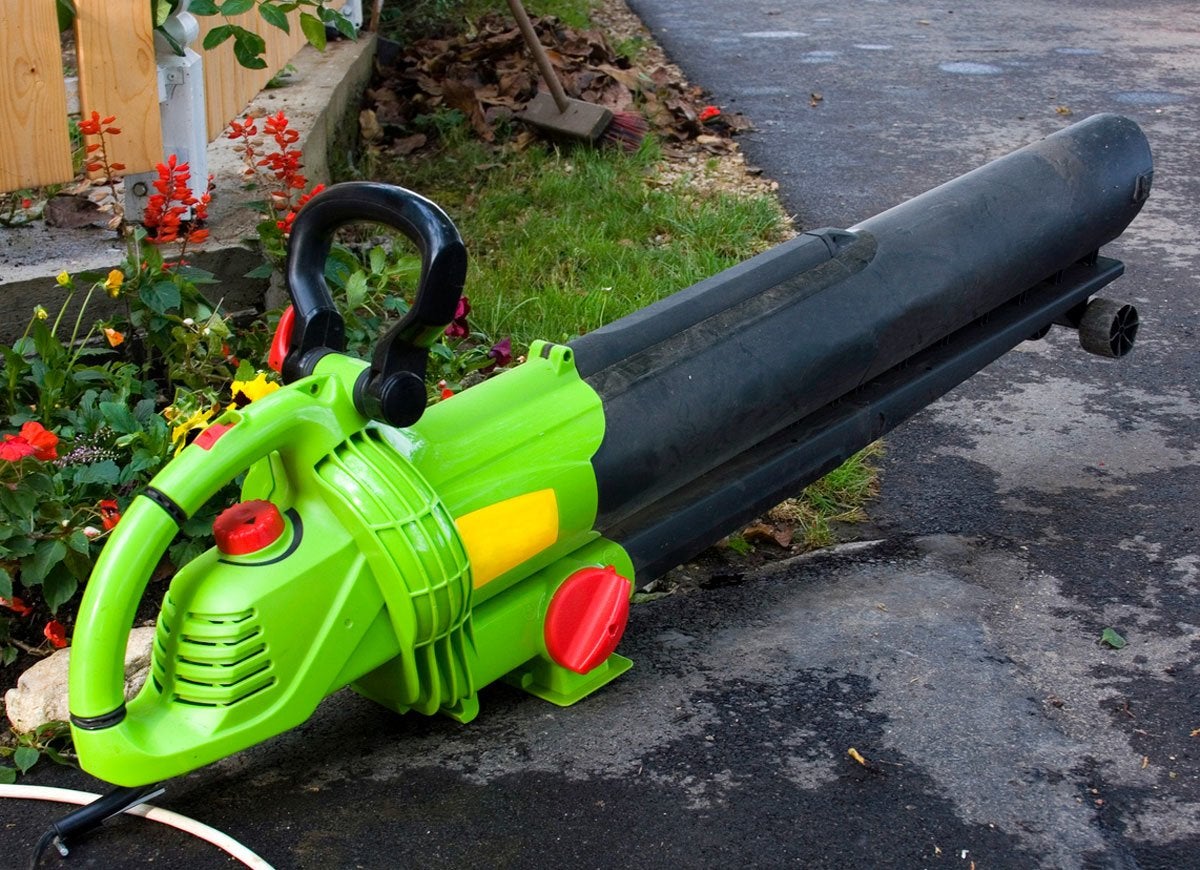
Cleaning away the debris that settles in garages is a tedious chore, but you can cut sweeping time in half with a leaf blower. Wearing a dust mask, work your way from the back of the garage to the front with the leaf blower. The best part: There’s no need to move heavy boxes or tools, as the powerful leaf blower will dislodge even hidden debris.
Related: 22 Genius Ways to Convert a Garage Into Living Space
Install an Easy Parking Guide
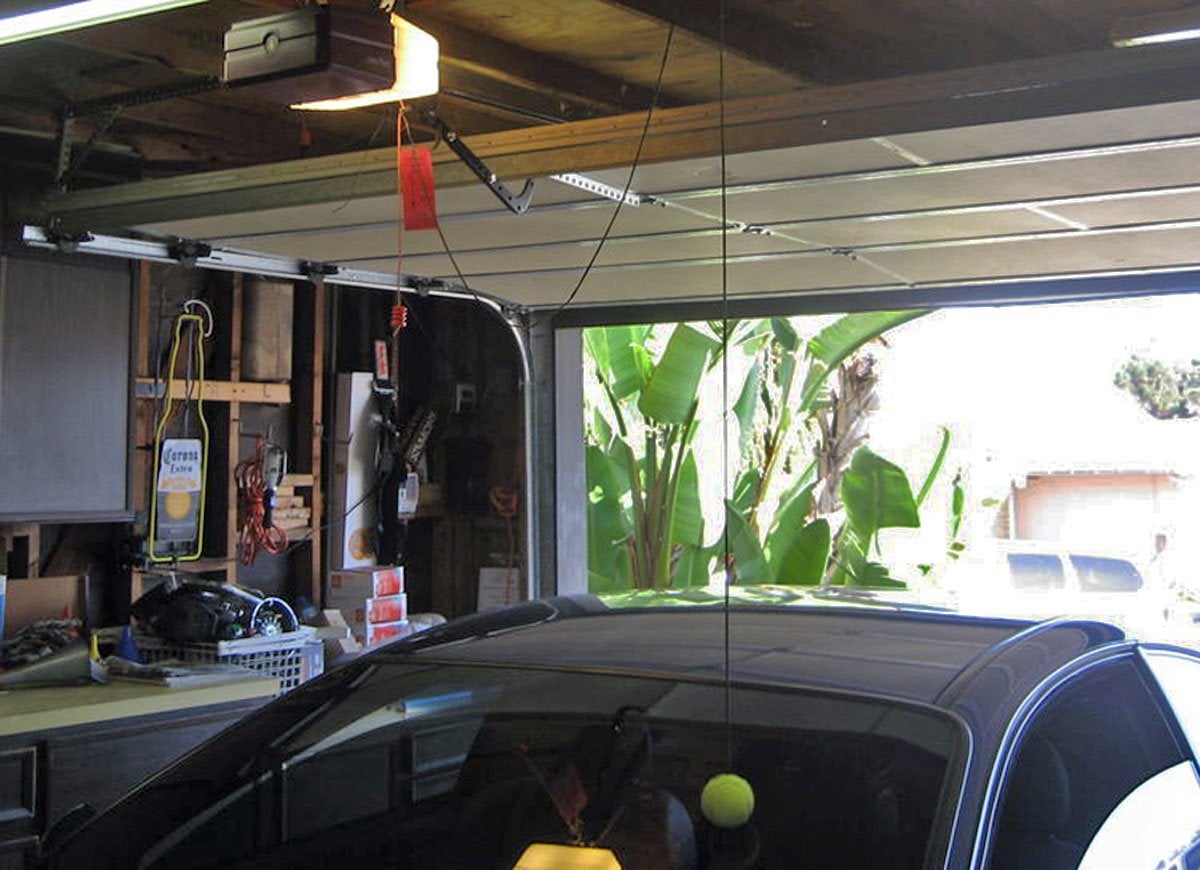
Have you ever scratched your car’s bumper by pulling too far into the garage? A parking guide can help save your vehicle and cure your parking paranoia. To make your own guide, start by parking your car in the right spot. Then, suspend a tennis ball on a cord from the ceiling so it barely touches the front windshield. Whenever you pull into the garage, stop the car as soon as the ball grazes the windshield to prevent accidents.
Perform a Safety Check on Your Automatic Garage Door
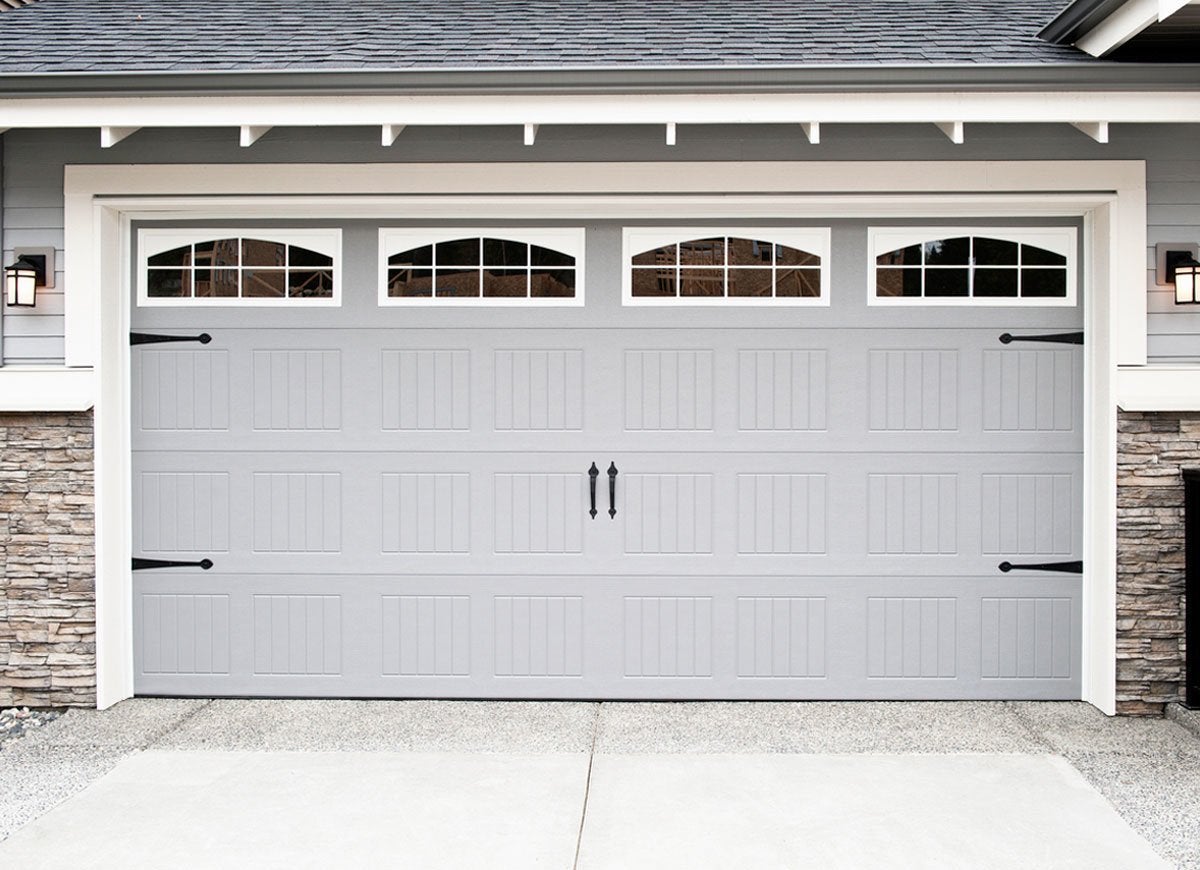
If the automatic reverse feature on a garage door isn’t adjusted correctly, the door can become a safety hazard for pets and children. To test the feature, open the garage door and place an item (such as a plastic bucket) on the floor, directly in the door’s path. Now, press the “close” button. The garage door should reverse direction as soon as it hits the bucket. If it doesn’t, check the garage door’s operating manual for instructions on how to adjust the reversal, or call a mechanic to fix the issue.
Fix a Cracked Concrete Floor
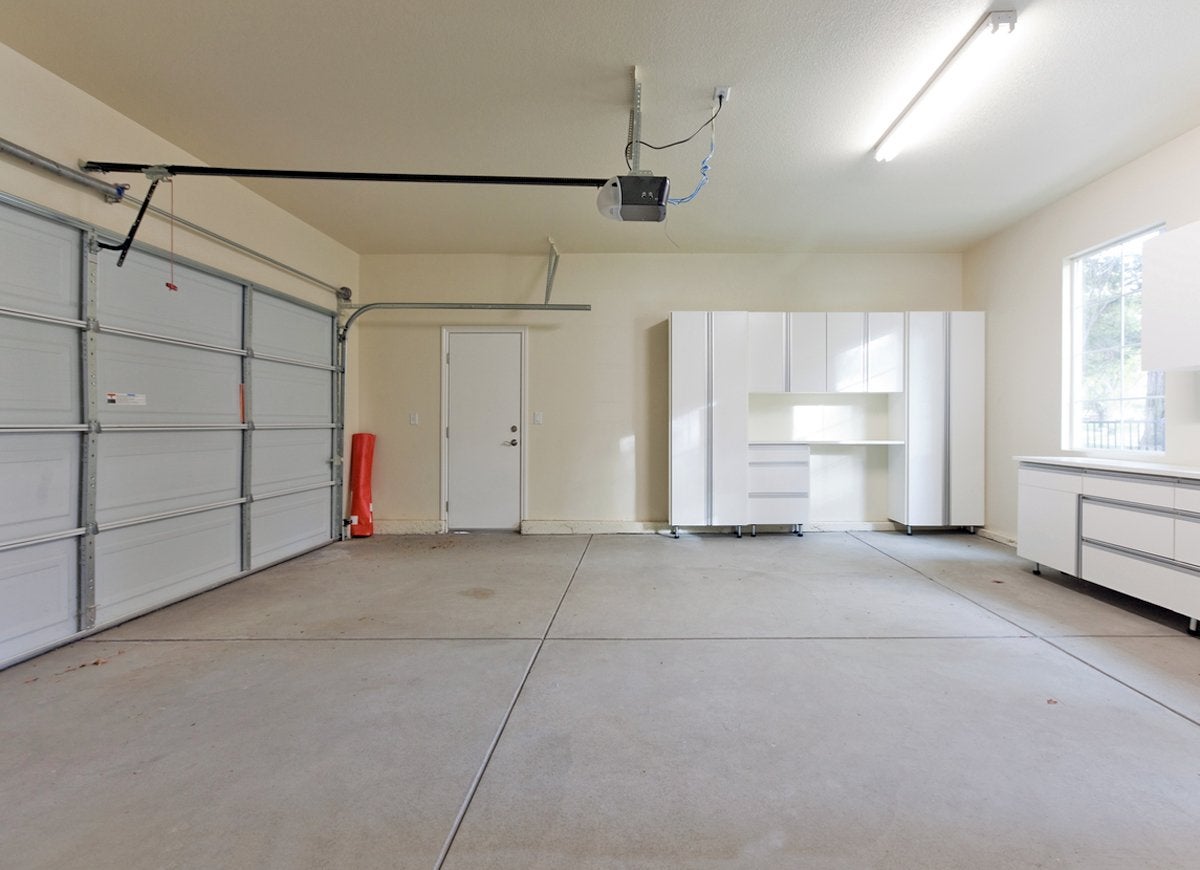
Concrete slabs usually crack or flake over time, and a few hairline cracks in a garage floor aren’t cause for concern. But repairs are necessary if the floor has multiple cracks or deep pits, or if sections of the surface are flaking off. Fill any cracks with mortar or self-leveling sealer. You can then return a damaged garage floor to near-new condition by applying a concrete resurfacing product to the entire floor.
Install Dedicated Circuits
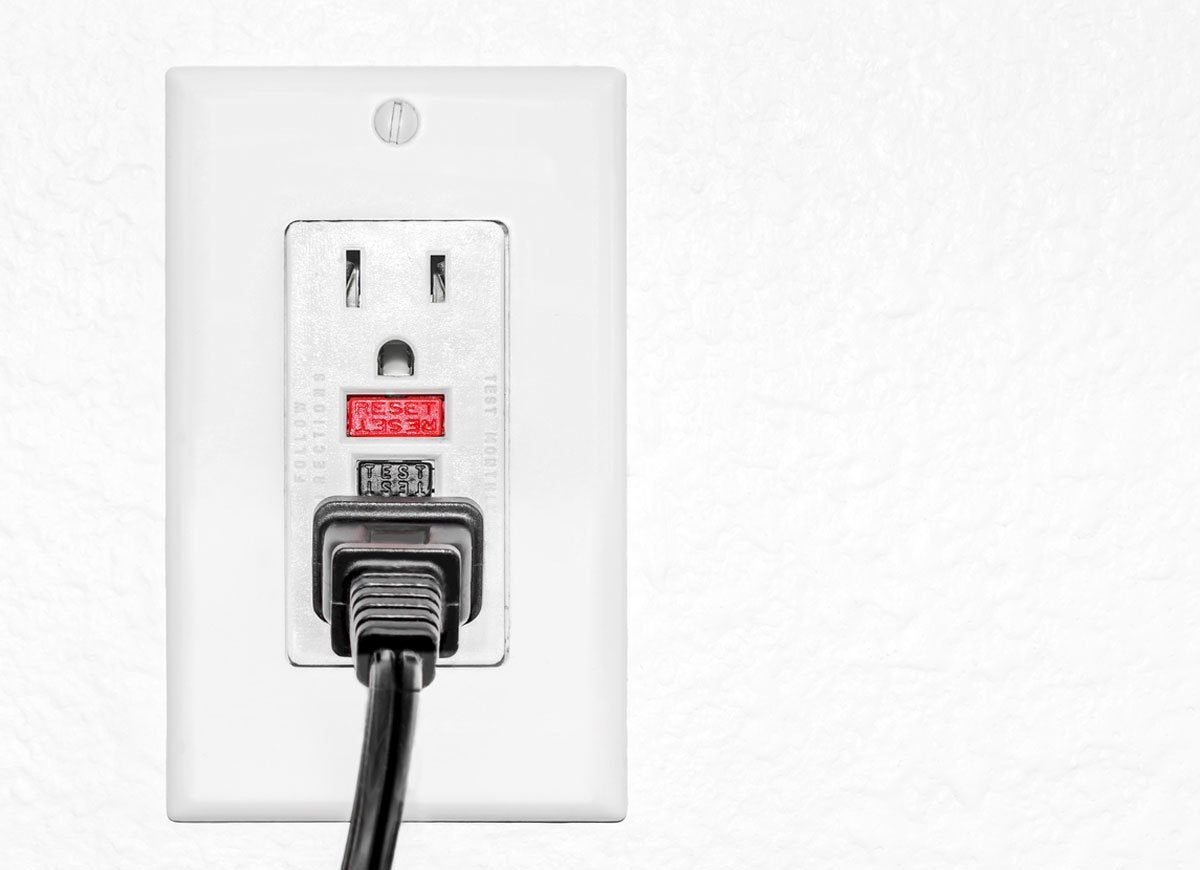
If you use your garage as a workshop, chances are it’s not adequately wired. Welders, air compressors, and other shop tools often require dedicated circuits to keep regular multiple-outlet circuits from overloading. Talk to a licensed electrician about updating your garage wiring with a 30-amp service, additional standard outlets, and dedicated outlets for operating heavy shop tools.
Set Up a Garage Exhaust Fan
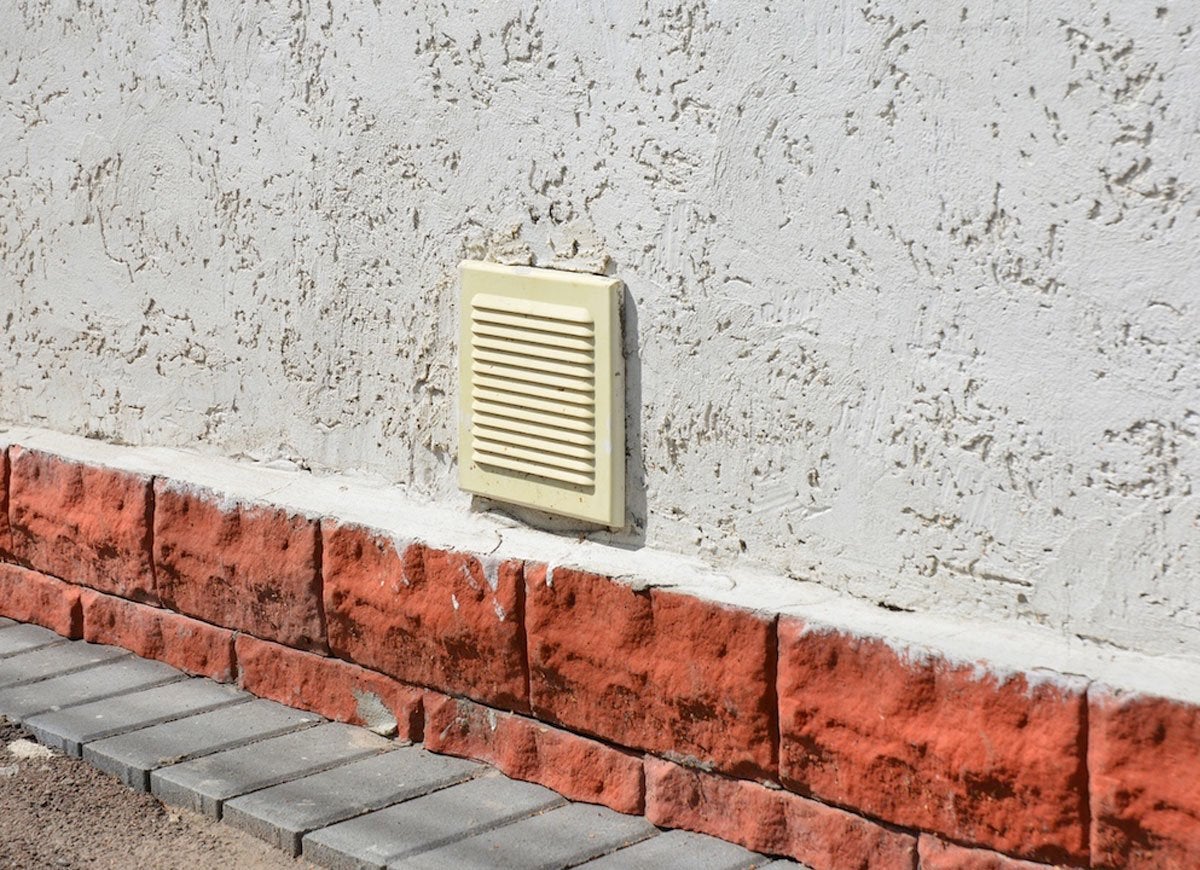
If you ever sand, weld, solder, varnish, or work with chemicals in your garage, then it’s a good idea to install an exhaust fan to get rid of dust and fumes. These fans are typically placed in an exterior wall. When switched on, the fan’s powerful suction quickly removes toxic fumes and airborne dust, keeping the air clean and safe for handy homeowners who enjoy woodworking or tinkering with automobile engines.
Dodge Drafts

Nothing puts a quicker end to working in the garage than frigid temperatures made worse by a lack of insulation. But before you think about plugging in a heater, try sealing the space against drafts. Replace the rubber gasket on the bottom of the garage door and put new weatherstripping around any other doors. While you’re at it, fill gaps around garage windows with caulk. Sealing the garage will trap warm air, making for a more comfortable work space.
Create Organizational Zones

To optimize the space in your garage, set aside separate zones for different types of items. For example, create one zone for sports paraphernalia like baseball gloves and tennis rackets, and another zone for garden tools like rakes and shovels. Zones nearest the door can be designated for items you use often, such as coats or pantry overflow.
Transform your garage

Keep your garage in check by doing things like installing a parking guide or repairing your concrete flooring. It will leave you saying, “thank you!” to yourself every time you use it.

Everything You Need for a Lush and Healthy Lawn
Keeping your grass green and your plants thriving doesn’t just take a green thumb—it starts with the right tools and supplies.

